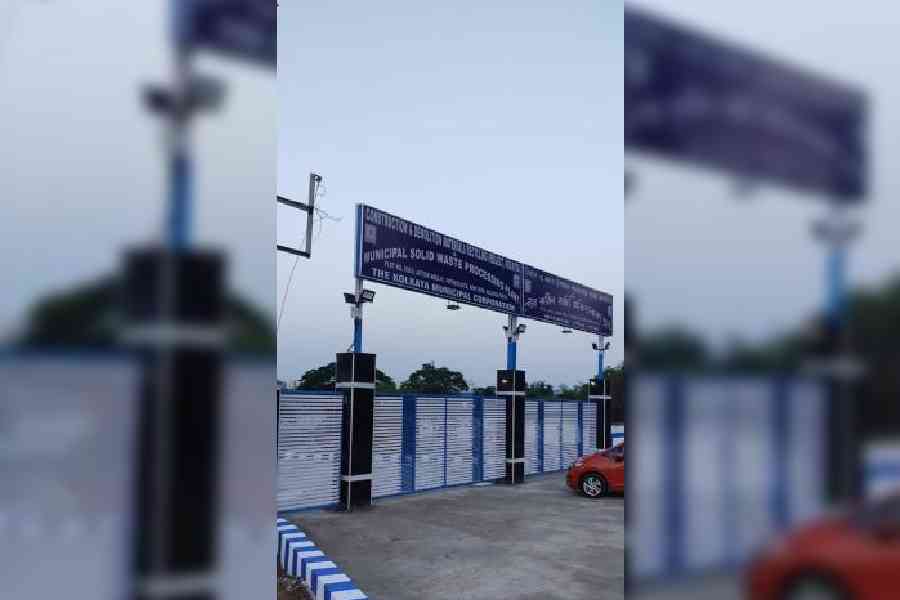The Kolkata Municipal Corporation (KMC) is paying a company to operate its construction and demolition waste plant for processing nearly 400 tonnes of waste each day, but on average, only about 200 tonnes of waste are reaching the plant daily, said KMC officials.
Despite appeals to neighbouring municipalities to send waste to the KMC’s plant, and attempts to plug leakages in the disposal of construction and demolition waste, the desired volume of waste is still not reaching the facility at Patharghata in Rajarhat.
The shortfall in the supply of construction and demolition waste — the raw material processed at the plant to make new products — means that nearly half of the daily payment to the company is yielding no returns, KMC officials admitted.
The plant was opened in April 2023. When running at full capacity, it can treat and process up to 500 tonnes of waste per day.
The waste includes materials such as brick, cement, sand, and aggregates. Iron reinforcements, however, are not accepted at the plant.
Construction and demolition waste is in high demand in the real estate industry, as it is used to prepare land before the start of any project.
Mayor Firhad Hakim has often alleged that such waste is being diverted to fill up water bodies and marshy lands, making them appear as vacant plots suitable for real estate development.
Its improper disposal also raises dust levels in a neighbourhood and can add to pollution in the area.
“The agreement signed between the private company running the plant at Rajarhat and the KMC says that the civic body will pay it the money equivalent to processing 12,500 tonnes of construction and demolition waste every month. This comes to a little over 400 tonnes of waste a day,” said a KMC official.
“But only about 200 tonnes of waste are reaching the plant every day. On some days, it goes up to 300 tonnes or above, but the monthly average is still 200 tonnes a day,” he said.
KMC officials said the monthly-assured payment, which is part of the agreement between the civic body and the company, is meant to help it recover returns on its investment. The KMC did not invest any money in setting up the plant.
“We handed over the land to the company. It bought machinery, set up infrastructure and employed people to run the plant. The assured payment is part of the agreement because the KMC did not invest any money in setting up the plant, and the company did not suffer unfair losses,” said a KMC official.
Before the plant was thrown open in 2023, most of the construction and demolition waste generated in the city used to be taken to Dhapa.
A senior KMC official had earlier said 15 Indian cities, including Delhi, Surat, Bengaluru, Hyderabad, Tirupati and Indore, have plants that process construction and demolition waste.










